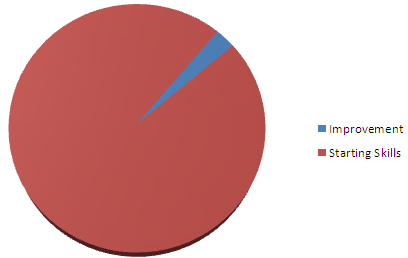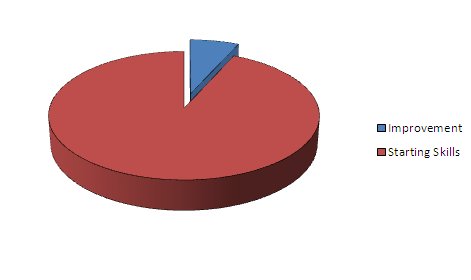Online Degree Complaints

Who is Complaining about Online Schools?
The articles, reviews, and comments that can be found on the Internet detracting online degree programs originate almost exclusively from two groups. The first, majority, group are a list of dropouts from various programs. Complaints range from "They couldn't get my financial aid right" to "they billed me four times for the same class" and "this school is not military friendly. My husband went into the field for three weeks and they would not accommodate him..."
The second group of detractors hail from traditional campus programs. "Your degree will never be equal to my degree" one accounting major stated in a thread. This second group is smaller, but also real. However, when an individual decides to denigrate online degrees, they often quote "evidence" from pool failed students and conflict-of-interest traditional degree holders. So much for science and reason!
The overall satisfaction of students with online degrees outweighs the voice of detractors. In exit surveys, 92.8% of online degree students expressed satisfaction. This edges out the 91% of traditional students who felt the same. So, focusing on those who had a bad experience (most frequently centered on financial aid issues), is not a fair portrayal of the online degree community.
Another reason that those who decided to attend traditional campus degree programs consider online programs to be what psychologists call the "choice-supportive bias". People recall the option they chose as the having been the best of all the options available. Leon Festinger in 1956 wrote about cognitive dissonance. Basically, people work to preserve their opinions of themselves. If they believe they are superior because of their decision making (e.g. choosing a campus degree, not an online degree), they will alter their memory and distort reality in their minds in order to preserve their self-image. This memory control includes decisions and choices. Cognitive dissonance theory, and the choice-supportive bias more specifically, predict that those who at present believe their personal choice to be the superior one will ignore contrary evidence ("whoever said they had an online degree and work for a Big 4 accounting firm is a liar."), and promote their own choice.
So, because the overall satisfaction of online degree students is better than that of traditional students, quoting from those who are most dissatisfied is an unrealistic portrayal. And, those who insist on-campus is automatically better have not yet achieved the level of responsible, scientific thought that excellence in performance requires; instead they are subjects of their ego.
Industry Exams Should Test Quality
Selective quoting, bias, heuristics... each of these have been used to present emotional arguments against accepting online degrees. However, as shown above, a lot of valuable talent comes out of online degree processes. Why not administer an exam to your applicants?
Whose program is the best? It is decidedly unclear. Whose students will be most productive for the firm? It is difficult to discern. Applicant A has a 3.75 from State U. Applicant B has a 3.60 from Ivy League U. How should they be compared? Ivy League schools receive more respect. But, who is this in front of you? How much did he retain? How does he perform outside of class?
Direct the HRM department to prepare an assessment to determine what the person's abilities are. The mere fact that an exam is in place will reduce your pool of applicants. Those who know they have not learned much will self-select themselves out of the application process.
Does it matter to you how much a student spent on their education, what their gpa is, or the name of their university? Much of the prestige attributed to college is as unwarranted as the stigma of online degrees. Giving an exam to applicants is the easiest, smartest way to discern who is who.
Which Attribute is Best?
Which of the following is most important in hiring a new book keeper?
2.7% Improvement over Four Years

A Bachelor's Degree Adds Little to Basic Skills
Regardless of academic program, a college degree does little to improve basic skills.
A study from ets.org used to prepare the 2008 Annual Report of the University of Phoenix shows that testing in the areas of basic skills are actually quite close when comparing incoming freshmen (high school graduates) to graduating college seniors. The areas of Critical Thinking, Reading, Writing, and Mathematics were tested. These are the only skill areas which have been shown to be important in predicting career success using statistical regression.
The maximum score possible was 120. The scores ranged from 108 to 113 for the incoming group. For finishing seniors, scores ranged from 111 to 119.
I want to make two notes. First, the improvement is actually quite small. It is so small in fact, that a good national argument against 4-year degrees and favoring internships and corporate training programs exists. Second, the improvement of the online learners (who started 1 to 4 points lower) was greater than the improvement of the traditional campus learners.
In short, considering the statistical distribution of ability, some high school graduates scored higher on tests of these basic abilities than did graduating seniors.
So, when considering an applicant for a position, test the applicant, not the degree.
Examples of jobs that rely more on basic merit than on degree prestige: managerial positions, loan processors, construction estimators, military officers, and high school teachers.
7.2% Improvement after Four Years of College

The Correlation between College Degrees and Success is Cloudy
Examples of jobs that do require special knowledge: college teachers, engineers, doctors, laboratory researchers, surveyors, and geologists, to name a few.
Interesting articles: Bachelor's Degree Not Always Key to Success
Don't Hire an MBA (It seems they do only as well as a BA holder who takes a 3-week training program).
The End of Business Schools? Less Success than Meets the Eye This article reviews data suggesting that a business MBA makes little or no difference in personal career success, "Neither an MBA nor grades earned in courses correlate with career success".
Father Guido Sarducci- 5 Minute University
Even Harvard Grads Complain
Look at the next quote. Which online school do you think this complainer graduated?
“I’ve coasted on far higher grades than I deserve. It’s scandalous. You can get very good grades and earn honors, without ever producing quality work."
This quote is attributed to Trevor Fox, a graduate of Harvard.
In Spring, 2001, according to a Boston Globe article, 91% of Harvard grads received honors. How are 91 percent of all students receiving a 3.5 or better gpa? Does that sound like grade inflation? How about a diploma mill?
Beware of complaints. They tend to come from people who are generally unhappy. And, emphasizing complaints seems more typical of people seeking to debase an institution than of people attempting to make a right assessment.
Note: Harvard still produces exemplary graduates. Is it the education alone? Not alone, no. One important factor in the final product is the recruitment process. Harvard solicits and receives applications from the finest, hardest working students from all over the world. They start out with an extremely talented cohort of people each year. This may be their greatest success tool of all: the bottleneck at selection.








